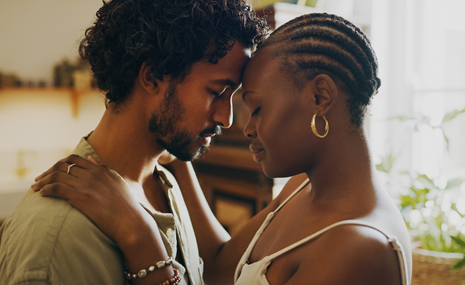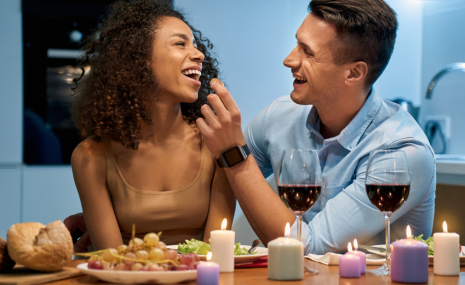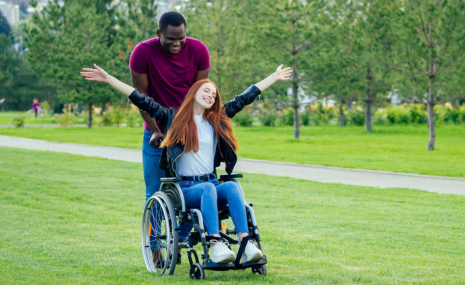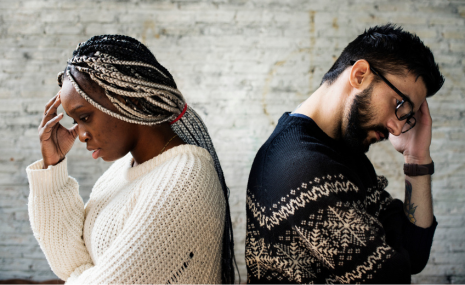Should transracial adoption be discouraged because the kids struggle to fit in?

She remembers the isolation, the confusion, the racism, the passers-by who gawped at her because she looked different from her parents. Sue Jardine, 50, said she felt neither Chinese nor British, "a bloody foreigner" in a country that didn't understand her.
"My obvious difference to my family attracted unwanted attention and racist comments that I felt my parents did not understand or want to acknowledge," she said. - Excerpt from The Guardian
That is what transracial adoption was like for her.
Find your soulmate on LatinoLicious










According to a recent research, cultural and ethnic differences can have a deep impact on ethnic-minority children, especially those adopted by white parents.
The British Association for Adoption and Fostering (BAAF) carried out a study on transracial adoption by tracking down and analyzing the experiences of 72 Chinese orphans from Hong Kong who were adopted white British parents in the 1960s. The research gives a detailed analysis of the effect of transracial adoptions.
According to the study, race appeared critical to the girls' well-being, with the study finding that while growing up, most of the girls (now women) "felt alienated, struggled with conflicts of dual/multiple identities and had experienced race-based mistreatment". For many, childhood and teenage-hood were traumatic with 54% feeling uncomfortable about the comments people made regarding how different they looked fro their adoptive parents; and 75% wishing they looked “less Chinese”. The race based harassment and discrimination impacted on most of them substantially. Good thing is: as they matured, they became more comfortable with looking Chinese.
Much as some had much love from their adoptive families, one, Claire Martin, 52, thinks the government shouldn’t play down the importance of ethnicity in adoption saying: "I would not like the government to say that love is the most important thing. I just don't believe that's the case. There are enough of the women who have had really bad experiences even where people have genuinely loved them… They can give food, shelter and all that stuff, but when it gets to the higher end of people's needs like confirming their identity, self-image, they haven't been able to fulfill that. It's really important the adoption process takes this into account and doesn't sweep race under the carpet."
In Jardine’s case, she had to turn to therapy to overcome her sense of "disconnection and isolation" because she rarely bumped into Chinese people while growing up. Eventually, she moved to multicultural London just so she can blend in.
On the other hand, Jasmine Gillies, 52, was adopted into a white family that also adopted a black boy. For her, the experience was all inclusive; racial differences didn’t matter. She was even shocked to learn that some of the other adopted Hong Kong orphans had miserable childhoods.
However, most of the adopted individuals in the study feel caution should be exercised before encouraging transracial adoption saying parents should prove that they acknowledge and understand ethnicity issues which may arise. Jardine said: "Transracial adoption should be a last resort. Ethnicity and cultural identity are defining factors in how we are perceived and perceive ourselves."
The research noted some positive outcomes with the Hong Kong orpharns. They exhibited "good levels of mental and physical health, educational achievement, positive family lives and relationships with adoptive families."
So if these adopted kids became well-adjusted as they matured, will it be fare to deny a child the chance to thrive and realize his or her full potential just because she isn't of the same race with the adoptive parents?
2 responses to "Should transracial adoption be discouraged because the kids struggle to fit in?"
Leave a reply
You must be logged in to post a comment.
-

-
 ElegantBelle says:Posted: 09 Feb 13
ElegantBelle says:Posted: 09 Feb 13Absolutely not! BUT.... We live in a cold world, so any adopting parents (especially those who adopt outside their race) should have conversations that addresses racial/ethnic differences with their children once they reach certain age (for their own safety and betterment). At some point, those children will start to see those differences themselves especially when they look at family photographs and realize that they look different so it's better for them to learn about the situation from their loved ones than to hear it from callous peers/bullies. Furthermore, a great way to curb the isolation several children feel in this situation is to keep the children in touch with their roots. I've come across a handful of adopting parents who do a poor job of integrating their adopted child's culture with theirs and that poses a conflict down the line. Some bi-raciali/multi-racial children often face similar problems (with fitting in, etc) but like I emphasized earlier on, these are social issues that can be decreased or even eliminated when parents/guardians stop avoiding the elephant in the room. In conclusion, raising an adopted child of different race as your own will never change his/her racial/cultural identity (sadly); so it's important to prepare the child ahead of time so he/she will grow to understand that the difference stops at complexion and sometimes culture but it's certainly not skin deep.
Reply to this comment















































I wrote a paper on transracial adoptions in graudate school. We should continue finding good homes for children regardless of the race of the adopting families. The key word is "good homes/good parents. Much better than having kids age out via the foster care system.